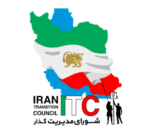Iranian officials have reacted mildly, and even cautiously, to last month’s killing of Mohsen Fakhrizadeh, described in domestic media as an expert in fields including medicine, nuclear physics and ballistics.
A spokesman for the Iranian Revolutionary Guard ventured to contradict harsher words by the Guards’ commander, Hossein Salami. Meanwhile, instead of vowing bloody vengeance, Supreme Leader Ali Khamenei called for “those who ordered and perpetrated” the act be found and punished. No doubt Iranian officials will once more invoke the need for “strategic patience,” to cover their strategic weakness.
Loss of symbols
From early 2020, at least four symbols of the Islamic Republic have been toppled, though “strategic patience” has dissuaded the regime from reacting firmly. In January, near Baghdad, drones struck Revolutionary Guard general Qasem Soleimani alongside Abu Muhandis al-Mahdi, the head of an Iraqi militia beholden to Tehran. Soleimani was a symbol of the Islamic Republic’s power in the region. In return, it rained mortars on an American base in Iraq, though nobody was killed. Indeed, Iraqi officials were said to have been warned of the attack beforehand, so they could pass the information onto the Americans!
On July 2, a large explosion damaged the Natanz nuclear plant in Iran, a symbol of the regime’s nuclear program. The Islamic Republic made threats again, and went no further. On August 7, a father and daughter were reported killed in one of Tehran’s busy avenues, Pasdaran. At the time it was said they were Lebanese. In November, it became clear the two were the deputy-head of al-Qaeda, Abu Muhammad al-Masri, and his daughter, the widow of Hamza bin Laden, son of the terror’s group’s founder Osama bin Laden.
Systemic weakness
Then came this latest killing on Nov. 27. Fakhrizadeh was known for years to UN bodies, Western governments and Israel as a senior figure in Tehran’s nuclear and ballistic programs. He was another symbol, and now too is gone.
Strategic patience is espoused by numerous officials, politicians and partisans of the Islamic Republic who are all mindful of the regime’s systemic and strategic weakness. They are concerned that a vigorous reaction might provoke a war with Israel, backed by the United States, which they know the regime could not withstand. Others, who it must be said have little role in shaping regime policies, like the prominent newspaper editor Hossein Shariatmadari, want a firm response. They believe such patience is useless and will only encourage Israel, Saudi Arabia and the U.S. to up the pressures on Tehran, if it does not open the way to wider operations inside Iran.
Phony power
Since 2019, the regime’s regional power has been challenged by ordinary folk in Lebanon and Iraq. The Islamic Republic knows it can no longer bank on the support of the Lebanese and Iraqi public opinion and governments. A while back the Iraqi government rejected its proposals for military and armaments cooperation, as Lebanon had done months before.
For Iranian reformists and their supporters outside Iran, Fakhrizadeh’s killing is seen as a plot, intended to sabotage the prospects of talks between the regime and the next U.S. administration. That would mean the operation was planned after Joe Biden was declared the winner! But assuming such an operation requires months of planning, not weeks, and could not have been planned after the November 3 elections, one then wonders whether eliminating these symbols is not as much a potential aid as it is an apparent obstacle to talks.
Future talks
Biden recently cited conditions for the United States’ return to negotiations linked to the 2015 nuclear pact, abandoned by President Donald Trump, which may complicate that return. He told CNN that reentering the pact should pave the way for talks on other issues like Iranian ballistic activities and regional interference. The elimination of Soleimani and Fakhrizadeh could facilitate talks on those areas.
Meanwhile Iran’s regime has problems on all sides. Its weakness in Syria has become evident, with Israel carrying out more than 300 strikes on targets there without Tehran reacting. The regime’s intelligence and security force have shown their weaknesses in their repeated inability to prevent targeted killings or sabotage of installations. The security apparatus has shed some of its own personnel, with dozens of agents arrested in recent years on charges of spying for foreign powers.
Popular protests in 2018 and 2019 were also an alarm bell for the authorities, while some of the information emerging from Iran suggests the authorities may be hard pressed to quell another round of mass protests. And then, well, there’s the economy
The only way
Talks then are the only way forward for a cash-strapped regime to recover $70 billion of funds blocked in foreign banks. This time around it would be in a weaker position than in 2015. Gestures like a recent parliamentary bill ordering the government to rev up enrichment activities and block the entry of UN inspectors will not work, and may be further proof of its weakness.
The Islamic Republic currently has no strategy to extricate itself from its economic, military, diplomatic and legitimacy crises. It has little to gain from threatening the West with nuclear activities. The only way to prolong its life a little more is to talk to the West — and the only doubts left are who will be sent to represent the regime, and when.









